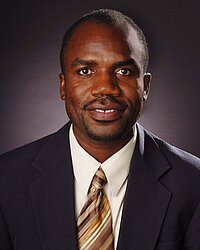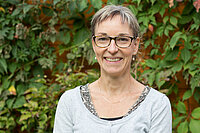Group 3
Comparative Group 3: Leadership for Adult Education & Organizational Learning
Leadership ∙ organizational leadership ∙ educational leadership ∙ adult education program ∙ adult learning
Emerging trends have indicated the need for adults to develop skills that would enable them to meet the challenges related to environmental, technological and economic changes in society. Such challenges are associated to the need for formal adult education and training programs, and the development of educational leaders in organizational settings. Adult education programs should prepare leaders who can foster organizational learning environments that empower adult learners to be equipped to meet the challenges of the 21st century knowledge economy society. Such leaders should be able to shape adult education policy and program development through innovative delivery models and cutting-edge adult learning practices. Consequently, this module intends to prepare participants to explore and analyze theoretical and conceptual frameworks in adult education and leadership, in order to develop learning activities, which can help adult learners develop 21st century skills that make them competitive in local work places that are globally interdependent. More specifically, participants who attend this comparative group will be able to:
1. Develop plans to foster organizational learning climates that engage adult learners, organizations and institutions in co-inquiry and change programs, organizations, institutions, and other learning communities;
2. Identify and discuss conceptual frameworks, approaches, or strategies used by educational leaders to develop organizational learning initiatives that foster transformative learning experiences to adult learners;
3. Compare adult education programs and organizational learning practices between two or more countries.
Comparative research question
1. What are the approaches and strategies used by educational leaders in your country to support adult learning and growth within institutions/organizations?
2. What types of adult educational institution or formal/non-formal education programs that prepare individuals to be leaders, managers, and facilitators of learning in relation to lifelong learning, continuing education, and learning from experience at work?
3. What are the frameworks mostly used by adult educators in your country to transform organizations, institutions, learning communities, and other settings that influence learning and change?
Context of comparison
The context of comparison aims at:
1. Adult educational institutions, programs, practices, and approaches in different countries.
2. Organizational learning policies and strategies in different national contexts
3. Adult educational leadership programs and organizational learning practices across different national contexts.
Categories of comparison
(selection for the transnational essay is based on participants research interests)
The categories of comparison will include, but not limited to:
1. Global comparison or Global local/national: The comparison will focus on adult education settings, institutions/organizations, adult learning activities, policies, and regulations in both global and local/national contexts.
2. Organizations/institutions: Comparing the management of adult education programs and organizational learning activities in different types of institutions/organizations.
3. Frameworks and models: Comparing various frameworks and models for facilitating the development of strategic initiatives for adult learners and organizational learning.
4. Programs: Comparing human resource development and adult learning needs and practices in different types of adult education programs.
Good practices
Practitioners should focus on diverse types of programs and learning activities; examine their philosophical and theoretical foundations, their relationship with specific cultural contexts; and explore core evidence-based practices informed by important adult learning and organizational leadership questions.
References
Jean-Francois, E. (2014). Motivational orientations of non-traditional adult students to enroll in a degree seeking program. New Horizons in Adult Education and Human Resource Development, 26(2), 19-35. DOI: 10.1002/nha3.20060
Sandmann, L.R., Kiely, R.C., & Grenier, R.S. (2009). Program Planning: The Neglected Dimension of Service-Learning. Michigan Journal of Community Service Learning, Spring, 17-33. Retrieved from: https://quod.lib.umich.edu/cgi/p/pod/dod-idx/program-planning-the-neglected-dimension-of-service-learning.pdf?c=mjcsl;idno=3239521.0015.202;format=pdf
Sutherland, O.D. (2016). Adult learning in innovative organizations. European Journal of Education, 51(2), 210-226.

Dr. Emmanuel Jean-Francois , Ohio University, USA
Dr. Emmanuel Jean-Francois is Associate Professor of Comparative and International Education at Ohio University. He is the Coordinator of the Doctoral program in Educational Administration/Leadership, as well as the doctoral specialization in Comparative and International Educational Leadership. His most recent books include: “Transnational perspectives on innovation in teaching and learning technologies” (2018), Perspectives in Transnational Higher Education (2016), “Building global education with a local perspective: An introduction to global higher education (2015)”, “Financial sustainability for non-profit organizations (2014)”, “Trans-cultural blended learning and teaching in post-secondary education (2012)”, “DREAM model to start a small business (2011)”, and “Global education on trial by U.S. college professors (2010)”. He is the Editor-in-Chief of the peer-reviewed journal The African Symposium, the Chair of the African Educational Research Network (AERN), and is the Past-President of the Transnational Education and Learning Society (TELS).

Prof. Dr. Sabine Schmidt-Lauff , Helmut Schmidt University Hamburg, Germany
Prof. Dr. Sabine Schmidt-Lauff has held the Professorship for Continuing Education and Lifelong Learning since September 2016. Her main research interest is in professionalisation and professionalism in adult education, professional identity, and international-comparative research on lifelong learning. Professional acting in adult and continuing education has been another key aspect of her work for several years. A special focus of her research and numerous national as well as international publications is on temporal and time-related challenges for learning throughout the whole lifespan in a globalised and virtualised modern world. From 2001-2004, she was head of one of the first pedagogical ERASMUS intensive programmes for adult education at Humboldt University Berlin (‘European Perspectives on Lifelong Learning and the Education of Adults’)."


